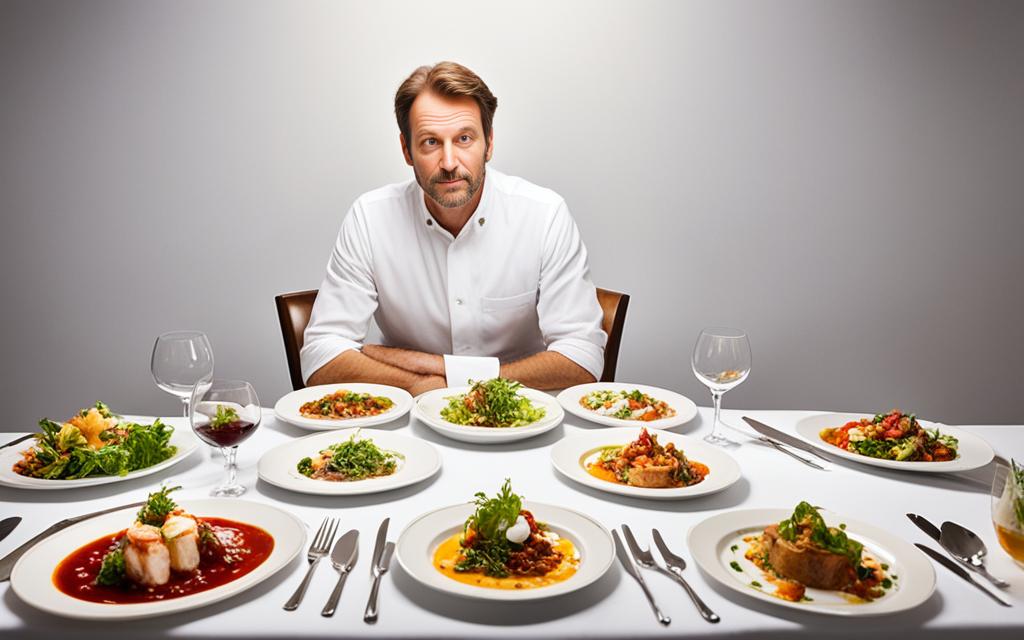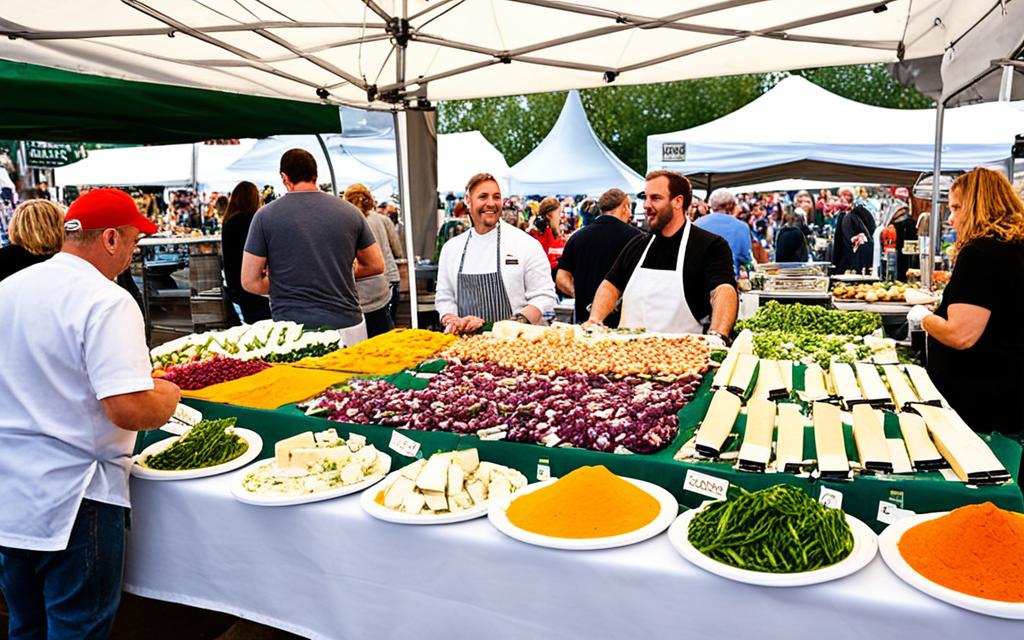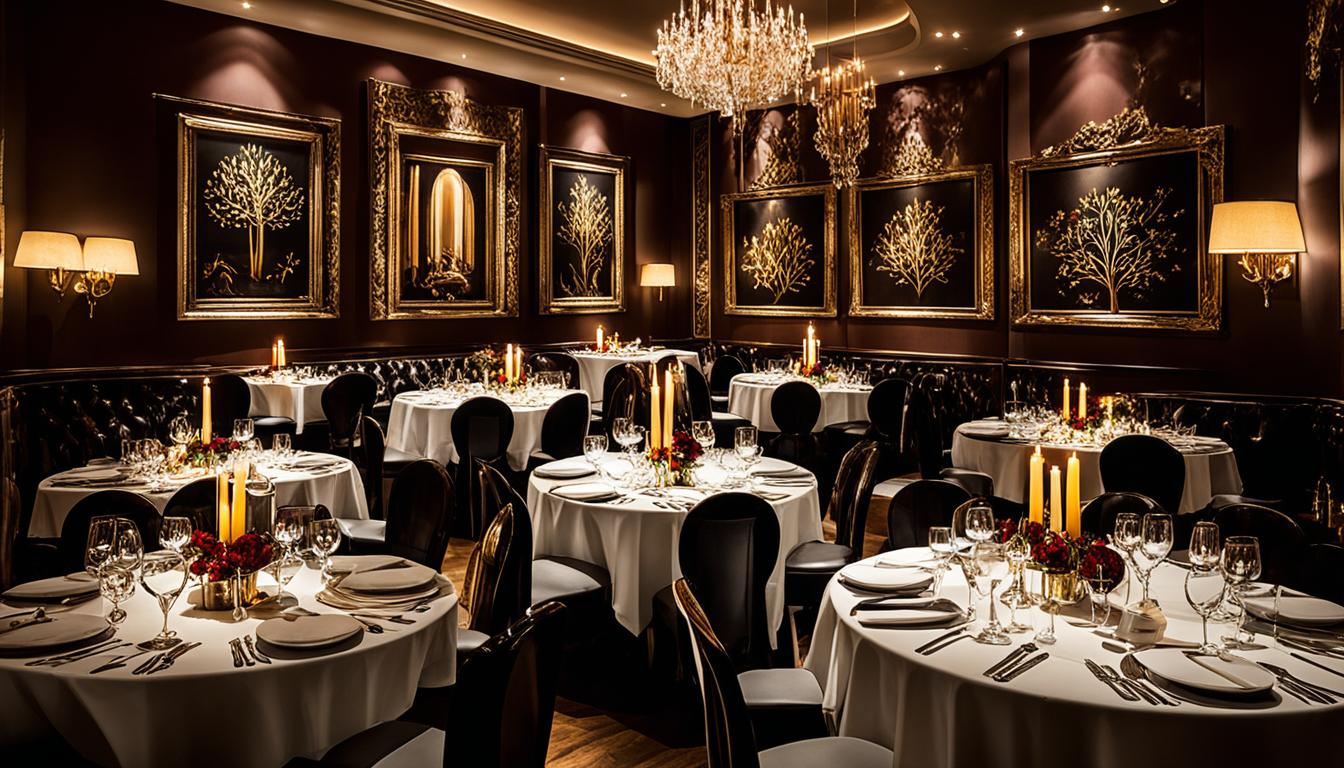Welcome to our comprehensive guide on restaurant reviews and recommendations! Whether you’re a food enthusiast in search of the best places to eat near you or a connoisseur looking for top-notch dining experiences, you’ve come to the right place. In this article, we’ll explore the world of unbiased restaurant reviews that cater to all types of dining preferences, from casual to fine dining.
In today’s digital age, online review websites have gained immense popularity as trustworthy sources for finding the perfect dining spot. However, the challenge lies in sifting through the vast amount of information available and finding reviews that align with your taste and expectations. Our goal is to provide you with unbiased recommendations that make your culinary journey memorable and satisfying.
With our in-depth exploration of the culinary landscape, we’ll uncover the hidden gems that connect people through dining experiences. From the deep-rooted desire for communal dining to redefining luxury through authentic culinary journeys, we’ll dive into the latest trends and innovations that shape the restaurant industry.
Key Takeaways:
- Trustworthy restaurant reviews and recommendations are essential for finding the best places to eat near you.
- Unbiased reviews cater to all types of dining preferences, from casual to fine dining.
- Online review websites are a popular resource, but finding reviews that align with your taste can be challenging.
- We explore the deeper meaning behind dining experiences and the longing for communal dining.
- Chefs are redefining luxury by providing authentic culinary journeys.
Exploring the Culinary Landscape: How Dining Experiences Connect Us
When it comes to dining, it’s not just about the food. It’s about the entire experience—the ambiance, the atmosphere, and the connections we forge over a shared meal. Dining experiences have a unique way of bringing people together, transcending cultural boundaries, and creating lasting memories. Whether it’s a cozy dinner at home with loved ones or an extravagant feast at a luxurious restaurant, the act of dining connects us on a deeper level.
The Deep-Rooted Desire for Communal Dining
Throughout history, communal dining has been an integral part of human culture. From the ancient Greeks gathering for symposia to the traditional Chinese practice of sharing dishes at a round table, communal dining embodies the essence of togetherness. There is a deep-rooted desire within us to come together, share a meal, and engage in conversation. Communal dining fosters a sense of unity and creates a space where relationships are strengthened and memories are made.
Communal dining experiences can be found in various settings, from family-style restaurants where large platters are shared among the table to pop-up dining events where strangers come together to enjoy a multi-course meal. These experiences not only satisfy our hunger but also nourish our souls, reminding us of the importance of connection and the joy that comes from breaking bread together.
Redefining Luxury Through Authentic Culinary Journeys
While luxury dining has long been associated with opulence and extravagance, today’s discerning diners seek something beyond material grandeur. Authenticity has become the new hallmark of luxury dining—a desire for experiences that go beyond surface-level glamour and provide a genuine connection to the culture and traditions behind the cuisine.
Modern luxury dining experiences take diners on culinary journeys, immersing them in the rich history, flavors, and techniques of a particular region. Whether it’s a chef-led tour of local markets, a hands-on cooking class, or a meticulously curated tasting menu showcasing the best of the region, these experiences offer a deeper understanding and appreciation of the culinary arts.
By redefining luxury through authentic culinary journeys, chefs and restaurateurs are creating a new standard of excellence—one that prioritizes cultural immersion, sustainable practices, and genuine connections with local communities. Luxury dining is no longer just about extravagance; it’s about creating meaningful experiences that leave a lasting impact on both the palate and the soul.
Chefs Raising the Bar Beyond Fine Dining Gimmicks
Fine dining has often been associated with elaborate presentations, molecular gastronomy, and intricate plating techniques. While these gimmicks can be visually stunning, many chefs are now pushing the boundaries of fine dining by focusing on substance over spectacle. They are striving to create experiences that not only dazzle the senses but also leave a lasting impression through their culinary prowess.
Today’s discerning diners crave authenticity and innovation. They seek chefs who are not afraid to experiment with flavors, ingredients, and techniques, but do so with purpose and reverence for the ingredients. From foraging for wild ingredients to reviving forgotten recipes, chefs are raising the bar by honoring culinary traditions while pushing them forward.
By championing sustainability, highlighting local ingredients, and telling compelling stories through their food, these chefs are creating dining experiences that are not just memorable but also meaningful. They are redefining what it means to dine in the modern age and challenging the notion that fine dining has to be synonymous with gimmicks and excess.
Through communal dining, authentic culinary journeys, and a focus on substance, today’s dining experiences have the power to connect us on a deeper level. They allow us to explore the culinary landscape, celebrate cultural diversity, and cherish the artistry of talented chefs who are shaping the future of dining. So the next time you sit down at the table, take a moment to appreciate the richness of the experience and the connections it forges.
Dissecting the Palate: The Encounters of a Food Critic
When it comes to restaurant reviews, the role of a food critic is instrumental in providing valuable insights and guidance for diners. A food critic holds the power to make or break a restaurant’s reputation, making their encounters and expertise crucial in the culinary world.
One of the key aspects of a food critic’s job is understanding the palate. The palate refers to an individual’s ability to perceive and differentiate flavors, textures, and aromas in food. It is the food critic’s finely honed palate that enables them to discern the subtle nuances and intricacies of a dish.
A food critic’s encounters while reviewing a restaurant are multifaceted. They meticulously analyze each component of a dish, from its presentation to its taste and execution. They assess the quality of ingredients, the skillful techniques employed, and the overall harmony of flavors. Their aim is to provide an unbiased evaluation of the culinary prowess and dining experience offered by a restaurant.
Being a food critic comes with its own set of responsibilities and challenges. They must remain objective in their reviews, shining a light on both the strengths and weaknesses of a restaurant. They navigate the delicate balance between honesty and constructive criticism, always striving to provide fair assessments that benefit both the restaurant and the readers.
The experiences of a food critic form the basis of restaurant reviews that guide diners in their culinary exploration. Through their encounters, they offer insights into the dining landscape, highlighting exceptional establishments and warning against subpar experiences. Their expertise and discerning palate ensure that readers can trust their recommendations when choosing where to dine.
“The encounters of a food critic shape the culinary world by elevating extraordinary establishments and urging constant improvement. Their role bridges the gap between the kitchen and the diners, creating a symbiotic relationship that fuels the pursuit of gastronomic excellence.”

To delve deeper into the world of restaurant reviewing and uncover the experiences of renowned food critics, let’s explore the journeys and insights of these culinary connoisseurs in the following sections.
World’s Best Restaurants: A Critic’s Global Gastronomic Ventures
Embark on a culinary journey around the world as we follow a renowned restaurant critic through their global gastronomic ventures. From the vibrant streets of New York to the romantic alleys of Paris and the thriving food scene of Copenhagen, our critic has explored the best restaurants, uncovering dining spots that offer authentic flavors and culinary delights.
https://www.youtube.com/watch?v=fwtg2WJe6Ec
From New York Flavors to Parisian Aromas: Top Dining Spots Revealed
New York City, known as a melting pot of cultures, offers an array of gastronomic experiences. Our critic has navigated its bustling streets, tasting the diverse flavors that the city has to offer. From the classic Italian cuisine of Carbone to the modern American dishes at Eleven Madison Park, these top dining spots showcase the best of New York’s culinary scene.
A journey to Paris, the city of love and haute cuisine, was an opportunity for our critic to indulge in elegant dining experiences. From the Michelin-starred Alain Ducasse au Plaza Athénée to the charming bistro Chez L’Ami Jean, Parisian dining never fails to delight with its refined aromas and exquisite flavors.
Unpacking Copenhagen’s Culinary Delights
Copenhagen, a city known for its innovative food scene, has captivated our critic with its culinary delights. Exploring the vibrant Nordic cuisine, our critic has savored the creations of renowned chefs like René Redzepi at Noma and the groundbreaking interpretations of New Nordic cuisine at Geranium. Copenhagen’s dining spots offer a fusion of tradition and innovation, delivering unforgettable dining experiences.
The Spirited Quest for Authentic Flavors Across Continents
As our critic travels across continents, their spirited quest for authentic flavors takes them on a culinary adventure like no other. From savoring the tantalizing street food of Bangkok to experiencing the artistry of sushi in Tokyo’s hidden gems, their journey showcases the diverse flavors and culinary traditions that enrich our global gastronomy.
Dining Beyond The Stars: When Casual Eats Meet Gourmet Expectations
In today’s culinary landscape, dining experiences have evolved beyond traditional fine dining establishments. A new trend has emerged, combining casual dining with gourmet expectations. Casual eateries are now pushing the boundaries by offering elevated dining experiences that fuse high-quality ingredients and techniques with a relaxed atmosphere.
“Dining beyond the stars transcends the formality of a restaurant setting and focuses on creating memorable experiences for patrons,” says renowned food critic Michelle Thompson. “It’s about blending the familiarity of casual dining with the refinement of gourmet cuisine.”
Whether it’s a neighborhood bistro, a food truck, or a trendy pop-up dinner, these establishments are proving that exceptional dining experiences can be found outside the confines of traditional fine dining establishments. By combining the accessibility of casual dining with the artistry and attention to detail typically associated with gourmet cuisine, these eateries are captivating diners with their innovative menus and creative presentations.
The emphasis is placed not only on the quality of the food but also on the overall experience. From the warm and inviting ambiance to the impeccable service, every aspect is carefully curated to provide a memorable dining experience.
The fusion of casual eats and gourmet expectations has given rise to a new wave of gastronomic experimentation. Chefs are embracing the freedom that casual dining allows, while still maintaining high culinary standards. They are leveraging their skills and creativity to showcase unique flavors and techniques, often drawing inspiration from both local and global cuisines.
Indeed, dining beyond the stars has redefined the way we approach food and restaurant experiences. By combining the best of both worlds, these establishments are offering diners a chance to indulge in exceptional culinary creations without the constraints of formality.
- High-quality ingredients
- Innovative menus
- Creative presentations
- Relaxed and inviting ambiance
- Impeccable service
Whether it’s celebrating a special occasion or simply enjoying a night out with friends, dining beyond the stars allows individuals to savor extraordinary cuisine in a more casual and approachable setting.
Restaurant Reviews and Recommendations: Decoding Diverse Cuisines
When it comes to exploring the culinary world, restaurant reviews and recommendations play a crucial role in guiding our dining choices. From expert opinions to enthusiast perspectives, these evaluations help us navigate the vast array of diverse cuisines available. However, decoding the true essence of different culinary styles requires more than just taste buds. It requires an understanding of context and culture.
Evaluating Eateries: The Fine Line Between Expert and Enthusiast Opinions
When it comes to evaluating restaurants, there’s a fine line between expert and enthusiast opinions. While experts may bring in-depth knowledge and experience to the table, enthusiasts offer a fresh, unbiased perspective. Both viewpoints are valuable in their own way, as they provide a comprehensive view of a dining experience.
Expert reviews tend to focus on technical aspects such as the quality of ingredients, execution of cooking techniques, and consistency in delivering exceptional flavors. Their evaluations are often based on years of experience, culinary training, and industry standards. On the other hand, enthusiasts provide insights from a consumer’s point of view, emphasizing aspects like ambiance, service, and overall experience. Their reviews often reflect the expectations and preferences of the general public.
While expert opinions bring expertise to the table, enthusiasts offer a relatable perspective that resonates with a wider audience. A balanced approach that considers both expert and enthusiast opinions can provide a more holistic understanding of a restaurant’s offerings.
The Importance of Context and Culture in Food Reviews
Food is not just about flavors; it’s a reflection of the society, history, and traditions of a particular region. When reviewing diverse cuisines, it’s crucial to consider the context and culture in which the food is embedded. A dish might taste different in its country of origin compared to how it is prepared and served in a different cultural setting.
Contextual elements such as ingredients, cooking techniques, and the historical significance of a dish contribute to its overall authenticity. Understanding these nuances helps reviewers assess the quality and true essence of a cuisine. For example, a traditional Indian curry should be judged based on its mastery of spices, use of specific ingredients, and adherence to traditional cooking methods.
By incorporating context and culture into food reviews, we can appreciate the depth and richness of diverse cuisines. It allows us to celebrate the heritage and traditions of different communities while promoting a more nuanced understanding of global gastronomy.

Decoding diverse cuisines requires a careful evaluation of expert and enthusiast opinions, as well as an understanding of the context and culture in which the food is rooted. By considering these factors, we can uncover the hidden gems and culinary delights that different cuisines have to offer. So, the next time you read a restaurant review or seek a recommendation, keep in mind the diverse tapestry of flavors, traditions, and stories that make up the world of food.
When Chefs React: Navigating the Choppy Waters of Restaurant Criticism
The Dynamics of Online Feedback and Chef Rebuttals
Restaurant criticism has evolved significantly with the advent of online platforms that allow customers to share their experiences and provide feedback. Chefs now find themselves navigating the choppy waters of public opinion, where their culinary creations are subject to scrutiny and judgment. The dynamics of online feedback have given rise to a new era of transparency and accountability in the restaurant industry.
When chefs receive feedback, especially negative reviews, it can evoke a range of emotions. While some may experience disappointment or frustration, others view criticism as an opportunity for growth and improvement. Online platforms have provided a platform for customers to express their opinions and have their voice heard, but it also means that chefs must learn to handle feedback constructively.
With the increased visibility of online reviews, chefs have also developed the practice of issuing public rebuttals to address criticism directly. This allows them to share their perspective, explain their choices, and engage in a dialogue with their customers. By addressing concerns and providing insights, chefs have the opportunity to shape the narrative surrounding their restaurants.
Balancing Constructive Criticism with Professional Conduct
Constructive criticism plays a vital role in driving culinary innovation and improvement. It allows chefs to identify areas for refinement and push the boundaries of their craft. However, delivering and receiving criticism requires a delicate balance between honesty and professional conduct.
For chefs, responding to criticism with grace and professionalism is crucial. Acknowledging feedback, whether positive or negative, shows a commitment to continuous growth and an understanding of the importance of customer satisfaction. By taking a constructive approach, chefs can demonstrate their dedication to providing exceptional dining experiences.
Additionally, maintaining professional conduct in the face of criticism allows chefs to uphold their reputation and credibility within the industry. It showcases their ability to handle feedback with poise and professionalism, which can be a testament to their character and expertise.
Ultimately, chefs must navigate the choppy waters of restaurant criticism by embracing online feedback, engaging in constructive dialogue, and upholding professional conduct. By doing so, they can not only enhance their own culinary prowess but also foster a stronger connection with their customers, ultimately shaping the future of the culinary industry.
Nurturing the Foodies’ Flock: The Role of Community in Shaping Dining Trends
Food enthusiasts, commonly known as foodies, play a vital role in shaping dining trends in the culinary world. They are more than just passionate consumers; they form a vibrant community that influences the way we eat and experience food. From discovering new restaurants and sharing recommendations to creating a sense of camaraderie around dining experiences, foodies drive the evolution of the restaurant landscape.
Word-of-mouth has always been a powerful tool in the realm of dining, and the foodie community amplifies its impact through social media platforms, blogs, and review websites. Their enthusiasm and genuine love for food inspire others to explore new flavors, seek out hidden gems, and try innovative culinary creations.

In a world driven by social connections, the foodie community provides a platform for like-minded individuals to come together, exchange ideas, and influence dining trends. They share their culinary explorations with others, sparking curiosity and inspiring others to join the gastronomic adventure.
Foodies are not just passive consumers; they actively engage with the dining experience. They seek out immersive dining events, pop-ups, and food festivals, creating opportunities for collaboration between chefs, restaurateurs, and food enthusiasts. By embracing their role as active participants in the food scene, foodies contribute to the growth and diversification of dining trends.
The foodie community embraces diversity and encourages exploration of different cuisines. They appreciate the rich tapestry of global flavors and celebrate cultural authenticity. By supporting and advocating for diverse culinary experiences, foodies ensure that dining trends remain dynamic and inclusive.
In conclusion, the foodie community plays a crucial role in shaping dining trends. Their passion, enthusiasm, and sense of community have a profound impact on the restaurant landscape. By nurturing the foodies’ flock, we can continue to celebrate the joy of dining and encourage innovation in the culinary world.
Breaking Bread Across Borders: Celebrating International Cuisine Unbiasedly
In today’s interconnected world, the culinary landscape is a rich tapestry of diverse flavors and vibrant traditions. Exploring international cuisine allows us to embark on a global gastronomic journey, experiencing the unique tastes and cultural heritage of different countries and communities. However, to truly appreciate and celebrate international cuisine, a systematic and inclusive food assessment is essential.
The Significance of Systematic and Inclusive Food Assessment
Systematic and inclusive food assessment plays a crucial role in recognizing the quality and authenticity of different ethnic cuisines. It involves an unbiased evaluation of the ingredients, techniques, presentation, and overall dining experience offered by restaurants that specialize in international cuisine. By examining these elements, we can understand the attention to detail, skill, and passion that goes into creating each dish.
Through systematic assessment, we can also identify the unique flavors, textures, and aromas that define a particular culinary tradition. This enables us to appreciate the intricate nuances of international cuisine and gain a deeper understanding of its cultural significance.
An inclusive approach to food assessment ensures that all types of international cuisine are given equal consideration and respect. It takes into account the traditional techniques, authentic recipes, and cultural context behind each dish, while also recognizing the evolving nature of food and embracing contemporary interpretations. By including a diverse range of cuisines, we can foster a more inclusive and open-minded dining culture.
Appreciating Ethnic Cuisine through Knowledge and Open-mindedness
To fully appreciate and respect the diversity of culinary traditions, knowledge and open-mindedness are essential. By seeking to understand the cultural, historical, and geographical influences that shape a particular cuisine, we can develop a deeper appreciation for its unique qualities. This knowledge allows us to engage in meaningful conversations about food, fostering a sense of cultural exchange and mutual learning.
Open-mindedness is equally important in our approach to international cuisine. It encourages us to step out of our comfort zones and embrace unfamiliar flavors and ingredients. Trying new dishes and exploring different culinary traditions expands our palate, broadens our horizons, and deepens our understanding of the world.
Breaking bread across borders celebrates the rich diversity of international cuisine. By embracing a systematic and inclusive food assessment and approaching ethnic cuisine with knowledge and open-mindedness, we can truly honor the global flavors that unite us all.
Michelin’s Marks: Are Stars an Accurate Measurement of Gastronomic Greatness?
In the world of fine dining, the coveted Michelin stars hold immense prestige and influence. They are seen as a testament to a restaurant’s culinary excellence and gastronomic greatness. However, the question remains: are Michelin stars truly an accurate measurement of a restaurant’s quality and value?
The Michelin rating system, established by the Michelin Guide, has long been considered the gold standard in the culinary world. The system awards restaurants with one, two, or three stars based on their exceptional culinary achievements. These stars are intended to guide discerning diners in their quest for extraordinary dining experiences.
While many chefs and restaurateurs strive to earn these illustrious stars, there is ongoing debate regarding their objectivity and relevance. Critics argue that the criteria used to award Michelin stars are vague and heavily biased towards certain culinary traditions and styles. This bias can lead to the omission of deserving restaurants or the overvaluation of others, potentially overlooking the diversity and richness of global gastronomy.
Moreover, the Michelin rating system primarily focuses on the technical execution of a meal and the quality of ingredients, often neglecting other crucial aspects of the dining experience such as ambiance, service, and innovation. These factors, which can greatly enhance the overall enjoyment of a meal, are not given significant weight in the evaluation process.
It is also worth considering the potential disparity between the expectations associated with a Michelin-starred establishment and the reality of the dining experience. The pressure to live up to the coveted stars may inadvertently lead to a lack of experimentation and risk-taking in the kitchen, resulting in a more predictable and formulaic approach to fine dining.
“The Michelin Guide is an indispensable companion for food enthusiasts, but it should not be the sole determining factor in seeking out gastronomic greatness.” – Food Critic
The true measure of gastronomic greatness lies in the subjective experiences and preferences of individual diners. A restaurant’s ability to consistently deliver exceptional, memorable meals that satisfy the diverse palates and desires of its patrons is what truly sets it apart.
Ultimately, while Michelin stars undoubtedly hold prestige and serve as a useful guide for discerning diners, they should not be the sole determinant of a restaurant’s worth. The dining landscape is vast and ever-evolving, with countless hidden gems and culinary innovators waiting to be discovered beyond the confines of the Michelin Guide.
Conclusion
In summary, this article has explored the importance of unbiased restaurant reviews and recommendations in providing valuable insights for readers. We have highlighted the role of dining experiences in connecting people and celebrating global gastronomy. From casual to fine dining, our aim has been to provide comprehensive information for all types of palates.
Throughout the article, we have discussed the significance of communal dining and the redefinition of luxury through authentic culinary journeys. We have also touched upon the experiences of food critics and their encounters while reviewing restaurants. Additionally, we have showcased the global gastronomic ventures of a critic, revealing top dining spots and highlighting unique flavors found in various cities.
Moreover, we have explored the concept of dining beyond the stars, where casual eateries meet gourmet expectations. We have discussed the process of restaurant reviews and recommendations, decoding diverse cuisines and considering expert and enthusiast opinions. Furthermore, we have delved into the dynamics of how chefs react to restaurant criticism and the importance of striking a balance between constructive feedback and professional conduct.
Lastly, we have emphasized the role of the foodie community in shaping dining trends and the celebration of international cuisine in an unbiased manner. In conclusion, unbiased restaurant reviews and recommendations, along with memorable dining experiences, play a vital role in connecting people and celebrating the diverse and vibrant world of global gastronomy.
FAQ
What are some top restaurant review websites?
How can I find the best places to eat near me?
Why are unbiased restaurant reviews important?
What role does a food critic play in restaurant reviews?
How do restaurant reviews evaluate diverse cuisines?
How do chefs react to restaurant criticism?
What is the role of the foodie community in shaping dining trends?
How are international cuisines celebrated in an unbiased manner?
Are Michelin stars an accurate measurement of gastronomic greatness?
Source Links
- https://www.lamuseblue.com/2020/01/dining-experience-best-meals/
- https://michelinstarfinedinings.wordpress.com/tag/food-review/
- https://diannej.com/2012/chefs-blast-bloggers-on-restaurant-reviews/



